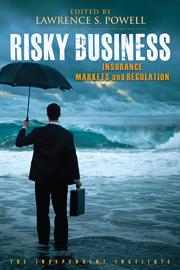Despite this year’s calm hurricane season, the past decade of disastrous storms has made it more difficult for many homeowners to find affordable insurance. Not surprisingly, they blame the insurance companies. It’s not that simple.
Catastrophic property losses create huge problems for insurers because they affect large numbers of policyholders simultaneously and don’t occur with predictable regularity.
To complicate matters, state authorities—seeking to keep insurance available and affordable—heavily regulate the industry, limiting where and under what circumstances insurers can enter or “exit” markets, what coverage must be included in homeowners policies, how much insurers can charge, when they can refuse to renew, and under what circumstances and how much they can increase rates. Every decision becomes political.
Moreover, residential insurers must offer homeowners a package of coverage that typically includes the dwelling, its contents, detached outbuildings, liability and more. While the insurance companies theoretically “set” the rates, the rates must be approved by state insurance regulators, who are reluctant to approve increases that will cause public protest.
The same is not true in the commercial insurance market. Commercial insurers, therefore, can provide far more flexible coverage at far more flexible rates, though commercial property risks are greater than residential risks.
Faced with all this, residential insurers that can’t remain profitable when catastrophic events occur have an incentive to stop writing policies and even exit markets, as State Farm is doing in Florida.
Government could help solve this problem by loosening the grip of regulation, allowing insurers to become more creative and charge premiums that more closely reflect actual risks.
More freedom in setting rates could price some low- and moderate-income homeowners in high-risk areas out of their homes. Rather than expecting them to move, and rather than preventing needed rate increases, a better option might be to subsidize their premiums. Such subsidies would apply only to existing homeowners, so further development in risky areas would not be encouraged.
It’s important to remember that the private insurance market has successfully weathered catastrophic property losses without asking for bailouts. Knee-jerk opposition to premium increases only makes it more attractive for cautious insurers to abandon markets, leaving consumers in a bind.








